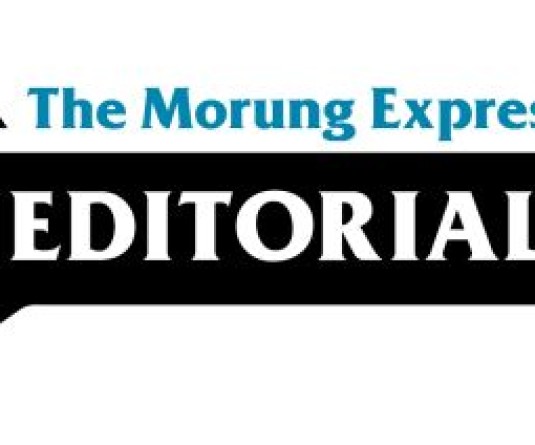
Dr Asangba Tzüdir
What the ‘politicians’ say in the public domain is important not because of what they say but because it often becomes a ‘temporary’ or a ‘false’ premise to seek the ‘truth.’ Therefore, what is said especially on the political (read politics) front should be taken with a pinch of salt.
As reported, the Nagaland Health Minister said during a recent press conference that, it is assumed that the Naga political issue is about to be concluded. Based on this, he further stated that the impending Nagaland State Assembly Election slated on February 2018 should not be held and be allowed to lapse by March 15, 2018 constitutionally and promulgate President’s Rule in view of the impending political settlement. (The Sumi Hoho has also voiced a similar view for the deferment of the forthcoming election so that smooth transition of any alternative arrangement can take place).
Like going himself from hope to despair besides the contradiction, the Minister further commented that the NPF party has been giving its support to the Naga Political talks with the condition that the settlement is “honourable” and that “it is acceptable to all section of the people.” That, he strongly supports the party stand though he has not understood the definition of “honourable” and “acceptable” and therefore calls it “conditional support.”
Further, ‘strengthening’ his position against holding the elections, he cites that Article 371 A as a constitutional provision is only in paper now and that for practical purposes it does not exist on the part of the Government of India. With this, he urges “everybody to give support to the ongoing political dialogue with utmost sincerity.”
Well, this politically bold statement against holding the next State Assembly Election is based on his ‘conditional’ support. So, what does it mean, when he urges everybody to sincerely support the ongoing political dialogue? Further, it is fair to say that the GOI has not been truly sincere regarding Article 371 A, but Nagas are still debating the Sixteen Point Agreement, not to mention even the absence of a codified ‘Naga Customary Laws’ so as to strengthen the case for Article 371 A. Nagas have failed their part too.
Well, for those who say that the solution to the Naga political settlement is closer than never before, or the assumption that the Naga political issue is about to be concluded, the truth is that the dialogue towards a Naga political settlement has only begun. With the inclusion of the 6 NNPGs, the interlocutor to the Indo-Naga political talks, RN Ravi has stated that the “spectrum of Naga Political talks has now become larger.” This may even necessitate for ‘reframing’ the framework of the ‘Framework Agreement’ signed between GOI and NSCN (IM) so that the ‘contents’ (or principles of negotiation) to initiate an agreement can be worked out in the larger interest of the political solution being “honourable” and “acceptable” to all.
The coming of RN Ravi to Nagaland for the second talk with the 6 NNPG’s was ‘elaborately’ welcomed by the Naga civil societies and tribal bodies. And though, a strict time frame was not mentioned, he stated that a solution cannot come before the 2018 State Assembly Elections but a solution should be reached before 2019 Indian General Election citing that a change in leadership may not change the entities but its character may change.
Well, there is a mistaken sense of urgency within elements of uncertainty but, of the two important events – the State Elections and the Naga Political Settlement, the former is more certain than the latter which has only taken a new dimension. So the stand of the present Nagaland Health Minister needs to be seen in this light, that, whenever a possible question is put forward, then a possible answer is sought. But for an impossible question one can only think of an answer in terms of the impossible.
The Health Minister has created a ‘peculiar’ contradictory situation where he has certain conditional reservations while asking ‘everybody’ to sincerely support the ongoing political dialogue; and going against holding the next State Assembly Elections, is he looking at an extension of ‘power’ without election?
(Dr. Asangba Tzüdir contributes a weekly guest editorial to The Morung Express. Comments can be mailed to asangtz@gmail.com)





